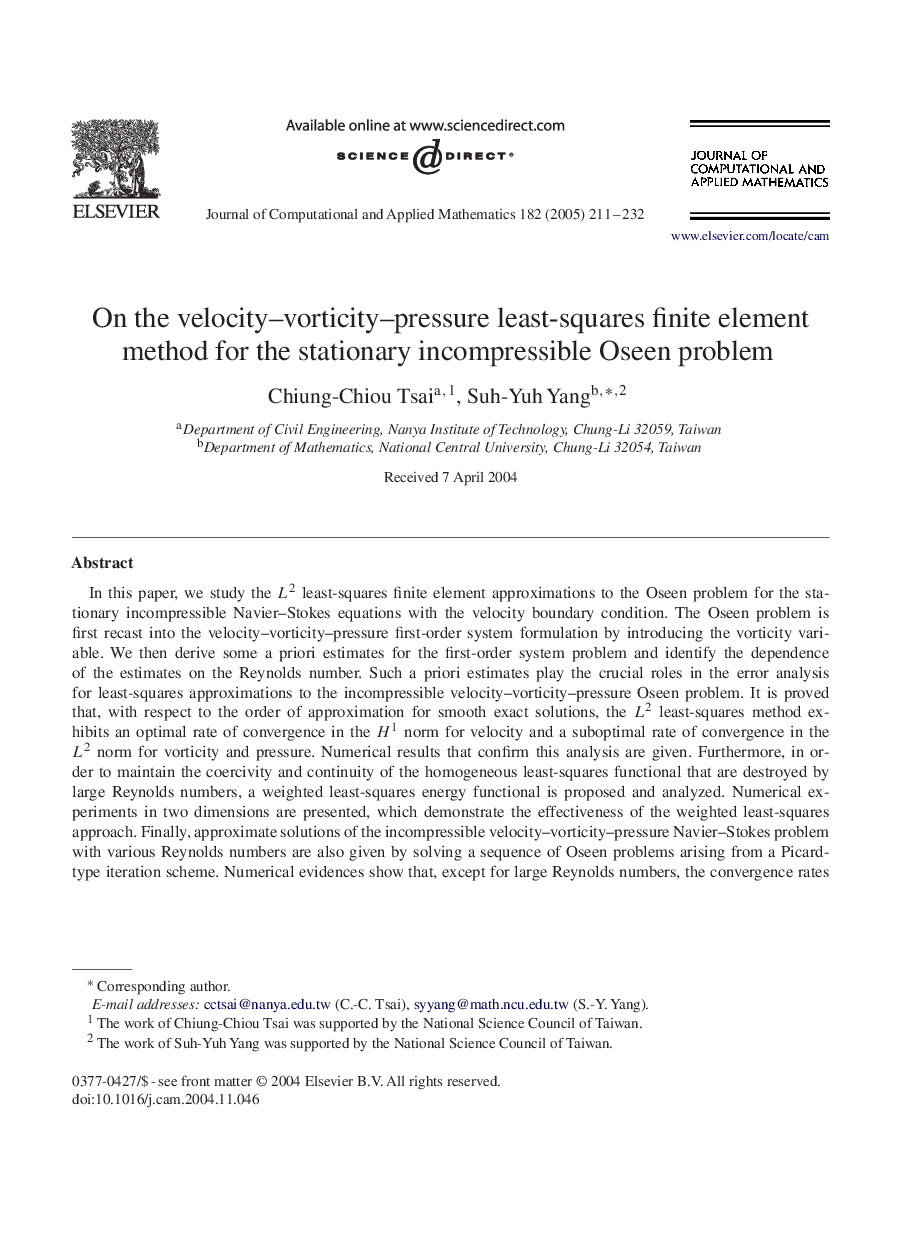| Article ID | Journal | Published Year | Pages | File Type |
|---|---|---|---|---|
| 9509400 | Journal of Computational and Applied Mathematics | 2005 | 22 Pages |
Abstract
In this paper, we study the L2 least-squares finite element approximations to the Oseen problem for the stationary incompressible Navier-Stokes equations with the velocity boundary condition. The Oseen problem is first recast into the velocity-vorticity-pressure first-order system formulation by introducing the vorticity variable. We then derive some a priori estimates for the first-order system problem and identify the dependence of the estimates on the Reynolds number. Such a priori estimates play the crucial roles in the error analysis for least-squares approximations to the incompressible velocity-vorticity-pressure Oseen problem. It is proved that, with respect to the order of approximation for smooth exact solutions, the L2 least-squares method exhibits an optimal rate of convergence in the H1 norm for velocity and a suboptimal rate of convergence in the L2 norm for vorticity and pressure. Numerical results that confirm this analysis are given. Furthermore, in order to maintain the coercivity and continuity of the homogeneous least-squares functional that are destroyed by large Reynolds numbers, a weighted least-squares energy functional is proposed and analyzed. Numerical experiments in two dimensions are presented, which demonstrate the effectiveness of the weighted least-squares approach. Finally, approximate solutions of the incompressible velocity-vorticity-pressure Navier-Stokes problem with various Reynolds numbers are also given by solving a sequence of Oseen problems arising from a Picard-type iteration scheme. Numerical evidences show that, except for large Reynolds numbers, the convergence rates of the weighted least-squares approximations for the Navier-Stokes problem are similar to that for the Oseen problem.
Related Topics
Physical Sciences and Engineering
Mathematics
Applied Mathematics
Authors
Chiung-Chiou Tsai, Suh-Yuh Yang,
